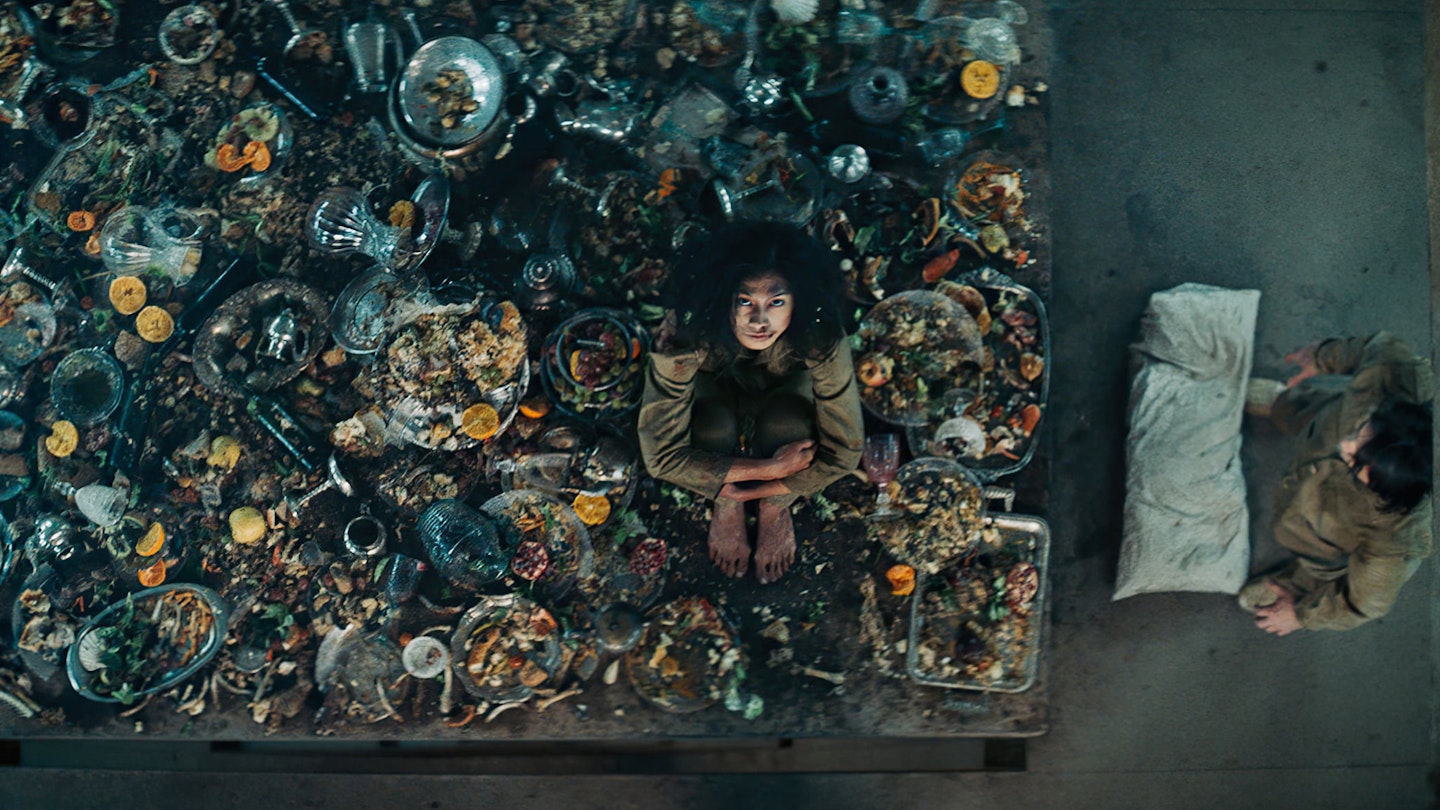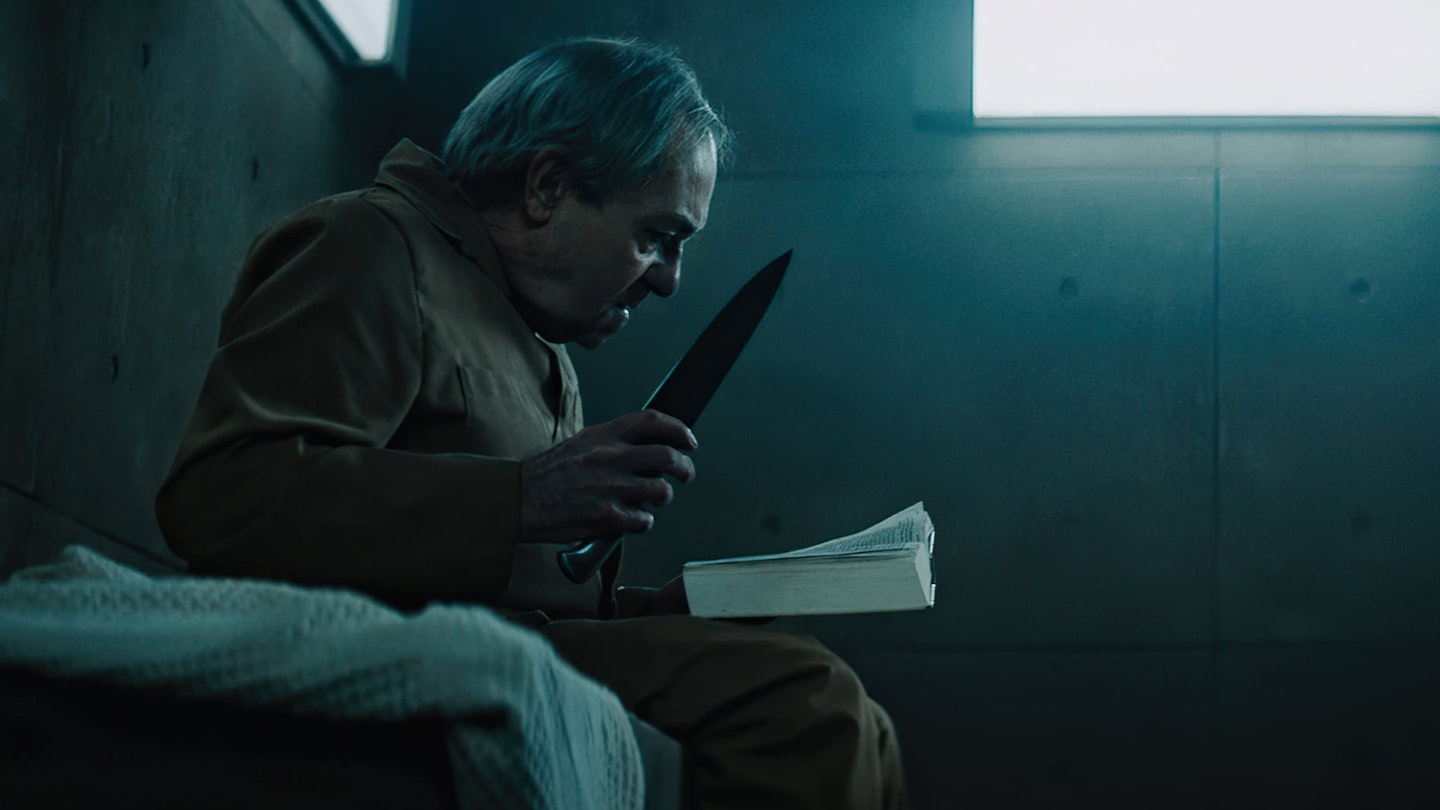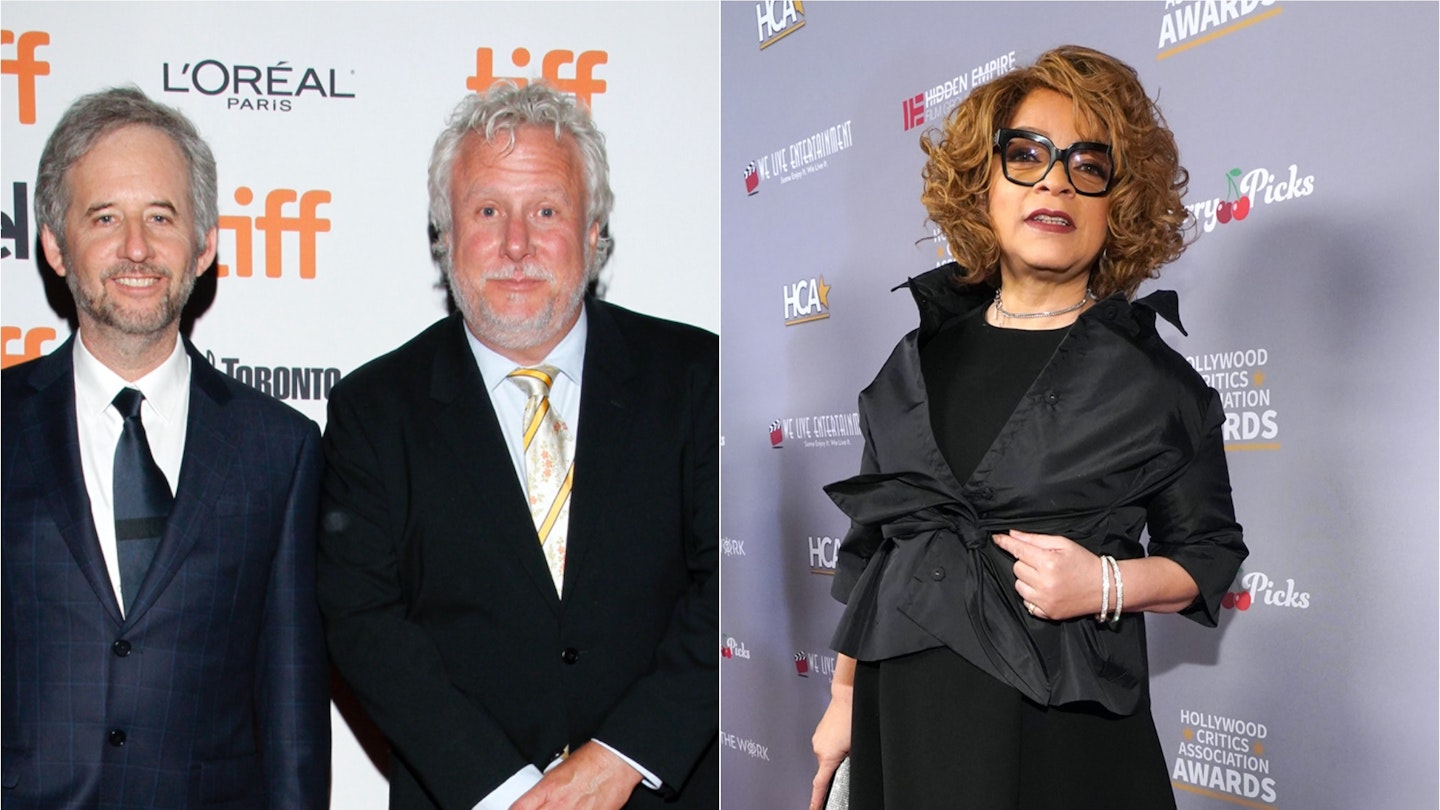An accidentally perfect parable for current times, The Platform has an ingeniously simple premise: Goreng (Iván Massagué) wakes up in a concrete room. In the centre of the floor and ceiling are large, rectangular holes, through which he can see other identical rooms stretching above and below across innumerable storeys. Each room contains two people. Goreng’s only companion is Trimagasi (Zorion Eguileor), a smirkingly cruel old man who explains what’s happening here. Every day, a platform covered in food is presented to Floor 1. Once Floor 1’s inhabitants have eaten their fill, the platform is lowered to Floor 2. They eat their fill, and the platform is lowered again, and so on and so on, down who knows how many floors. Each floor can only eat what the floor above leaves. Goreng is on Floor 48. He is nowhere near the bottom.

Galder Gaztelu-Urrutia’s film makes no attempts to hide its social metaphor in a broader story. The metaphor is the story. If every floor chose only to eat what they need there would be food for everybody, but nobody does. The inhabitants are sent to a new floor each month, so they may be feasting one month, starving the next. They have short memories. Those who find themselves suddenly elevated start gorging themselves, making up for previous starvation. They loudly complain about “those bastards” who left them with nothing, while doing the same. The individual, it says, will never blame themselves for societal dysfunction. It’s always the fault of those above and below them, taking too much or expecting charity they would never give. It’s not a film to make you feel aglow with love for your fellow man.
The Platform delivers its moral message with the mechanics of a lean thriller.
First-time director Gaztelu-Urrutia is making accusatory points about society, but he’s not finger-wagging. The Platform delivers its moral message with the mechanics of a lean thriller. It hurtles along, almost every shot bringing new information, both about the people in the tower — a mix of prisoners and volunteers, signing up on the promise of a reward when (if?) they’re released — and how the tower functions. As with other movies restricted in large part to a single set — Cube is the most obvious comparator, but you could also mention Room — the restriction of the setting forces creativity, which Gaztelu-Urrutia has in abundance. He uses dramatic angles, lighting changes and judicious special effects to keep it visually surprising. There are shades of the lustful decadence of Peter Greenaway and the industrial fantasy of early Jean-Pierre Jeunet in his styling. Our first shot is of a hoity-toighty kitchen meticulously preparing a feast, every dish a pristine artwork. When we see how the inmates treat that food, pouncing on it and fisting it into their faces, with no pause to taste it, it’s enough to ruin your appetite for weeks. As we’re frequently reminded, the food platform descends every day. Those higher up are never starving, yet eat like they are, because they can.
Gaztelu-Urrutia finds very clever ways to give hints of his characters’ history, without really telling us much about them. Goreng is the one we find out most about but even his biography is sparse. We know little more than that he volunteered to come to the tower, for a completely absurd, trivial reason. But we get to know him by his actions. He is fundamentally good and maybe too trusting. When he sees a silent woman travelling down the tower on the platform, he believes the story that she’s looking for her child. He wants to help. His attempts propel the movie forward. A rule that each inmate can bring a single item into the tower gives us a shorthand on who each of these people are, even if we see them for just a second. Many bring weapons; Goreng, clearly an optimist, brings a book; a lonely woman brings her dog; one briefly seen fool brings, bafflingly, a surfboard. These items don’t reveal much, but they make this a tower filled with people with lives and thoughts.
All this sounds like it might have an entirely nihilistic view on man, but there is hope here. As it charges toward its ending there is optimism that people will eventually try to help each other, even those they don’t know. Released at a time when the whole world is confusing and humanity’s empathy for each other is constantly tested, The Platform offers both a fantasy view on what can go wrong, but also a small, welcome reassurance that things can eventually turn around.

